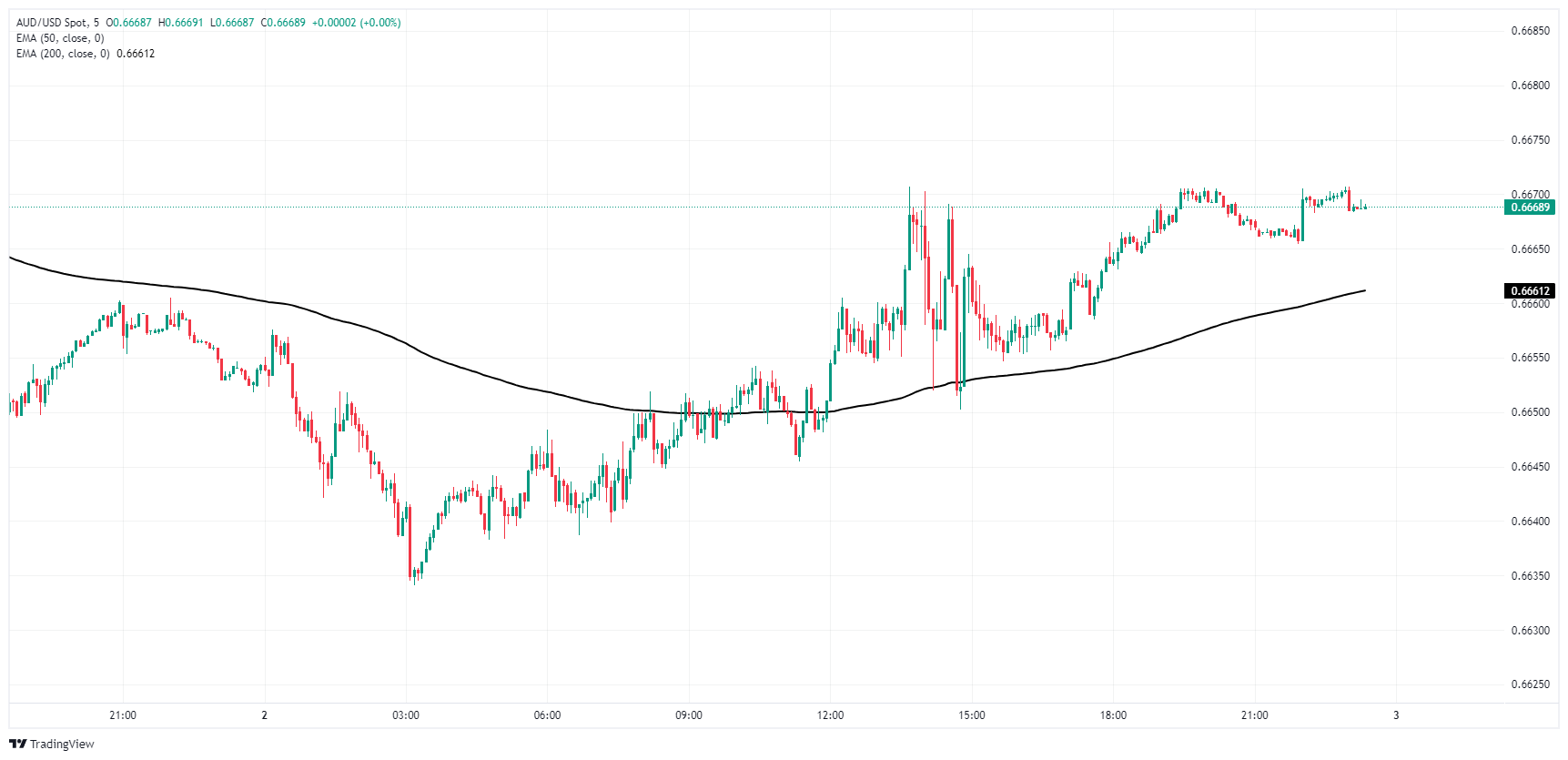- Analytics
- News and Tools
- Market News
- Juda Bank Australian Services PMI ticks higher to 51.2 versus previous 51.0
Juda Bank Australian Services PMI ticks higher to 51.2 versus previous 51.0
Judo Bank's Australia Purchasing Managers Index (PMI) figures improved slightly in June, with the Services PMI ticking upwards to 51.2 MoM compared to the previous month's 51.0, and flaunting the forecast move lower to 50.6.
Judo Bank's Composite PMI also ticked higher, moving to 50.7 MoM compared to the previous 50.6.
Despite the improved figure, weak spots in Australian business activity outlooks remains muted. As noted by Judo Bank Economist Matthew De Pasquale, "The final composite PMI results for June confirm that the Australian business sector continued to see output expand into the end of the financial year, with the services sector driving this growth. Despite the improvement in margin pressure and the resilience of business activity, business confidence remains soft and fell a little further in the month."
Economic Indicator
Judo Bank Services PMI
The Services Purchasing Managers Index (PMI), released on a monthly basis by Judo Bank and S&P Global, is a leading indicator gauging business activity in Australia’s services sector. The data is derived from surveys of senior executives at private-sector companies from the services sector. Survey responses reflect the change, if any, in the current month compared to the previous month and can anticipate changing trends in official data series such as Gross Domestic Product (GDP), employment and inflation. A reading above 50 indicates that the services economy is generally expanding, a bullish sign for the Australian Dollar (AUD). Meanwhile, a reading below 50 signals that activity among service providers is generally declining, which is seen as bearish for AUD.
Read more.Last release: Tue Jul 02, 2024 23:00
Frequency: Monthly
Actual: 51.2
Consensus: 50.6
Previous: 51
Source: S&P Global
AUD/USD five minute chart
About Australian Judo Bank Services PMI
The Services Purchasing Managers Index (PMI), released on a monthly basis by Judo Bank and S&P Global, is a leading indicator gauging business activity in Australia’s services sector. The data is derived from surveys of senior executives at private-sector companies from the services sector. Survey responses reflect the change, if any, in the current month compared to the previous month and can anticipate changing trends in official data series such as Gross Domestic Product (GDP), employment and inflation. A reading above 50 indicates that the services economy is generally expanding, a bullish sign for the Australian Dollar (AUD). Meanwhile, a reading below 50 signals that activity among service providers is generally declining, which is seen as bearish for AUD.
© 2000-2026. All rights reserved.
This site is managed by Teletrade D.J. LLC 2351 LLC 2022 (Euro House, Richmond Hill Road, Kingstown, VC0100, St. Vincent and the Grenadines).
The information on this website is for informational purposes only and does not constitute any investment advice.
The company does not serve or provide services to customers who are residents of the US, Canada, Iran, The Democratic People's Republic of Korea, Yemen and FATF blacklisted countries.
Making transactions on financial markets with marginal financial instruments opens up wide possibilities and allows investors who are willing to take risks to earn high profits, carrying a potentially high risk of losses at the same time. Therefore you should responsibly approach the issue of choosing the appropriate investment strategy, taking the available resources into account, before starting trading.
Use of the information: full or partial use of materials from this website must always be referenced to TeleTrade as the source of information. Use of the materials on the Internet must be accompanied by a hyperlink to teletrade.org. Automatic import of materials and information from this website is prohibited.
Please contact our PR department if you have any questions or need assistance at pr@teletrade.global.















